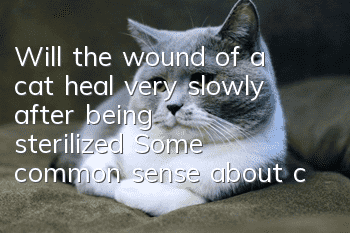Introduction to feline hypersalivation

Hypersialorrhea is a clinical symptom of excessive saliva secretion in cats, which involuntarily flows out, contaminating the forequarters and causing rapid weight loss. It often occurs concurrently due to oral diseases, systemic diseases, toxic diseases, etc.
Introduction to feline hypersalivation
1. Cause
1. Inflammation of the oral cavity and adjacent tissues and organs, such as stomatitis, pharyngitis, esophagitis, tonsillitis, sialadenitis and salivary gland cysts, stimulate increased saliva secretion.
2. Salivation may occur during certain infectious diseases such as canine distemper, rabies, and feline panleukopenia.
3. Accidentally eating food contaminated with organophosphorus pesticides, or poisoning caused by overdose of organophosphorus, arsenic, mercury and other drugs, spoiled food poisoning and drug allergy, can cause excessive salivation.
4. Paralysis of the lips, tongue, and pharynx, foreign bodies or obstructions in the esophagus, fractures or dislocations of the jaws, etc. cause swallowing disorders, resulting in a large amount of salivation.
5. Lip deformities and missing teeth can cause oral saliva to leak out, resulting in excessive salivation.
6. The owner’s conditioned reflex when feeding, teasing or training can also increase saliva secretion and cause drooling.
2. Symptoms
1. The area around the mouth is moist, with a large amount of transparent saliva, sometimes in the form of foam, or there are long and sticky strings of saliva hanging from the lip. In severe cases of salivation, saliva may adhere to the chest or forelimbs.
2. Dogs and cats suffering from salivation have different clinical symptoms due to different causes, such as esophageal obstruction, and dogs and cats exhibit symptoms of constant choking or vomiting.
3. Treatment
1. When the cause of the disease cannot be determined, 0.03 to 0.05 mg of atropine per kilogram of body weight can be injected subcutaneously to stop salivation.
2. After the cause of the disease is identified, the primary disease must be cured promptly. For example, if there are foreign bodies in the mouth, pharynx or esophagus, they should be removed as soon as possible; for organophosphorus poisoning, special antidotes such as pralidoxime should be used; if the lower bone fracture or Dislocations can be reconstructed; lip deformities can be corrected surgically.
3. According to the condition, take corresponding symptomatic treatment, such as sedation, cardiotonic, rehydration, etc.
- How to take care of Chinchilla cat hair?
- Is your cat’s hair loss still serious in autumn? Maybe you have ignored these diseases?
- Why is the cat drooling?
- Does the owner know if a cat bite hurts?
- What should I do if there are black bugs on my cat?
- Will a pregnant cat suffer from morning sickness? Will a pregnant cat suffer from morning sickness?
- To prevent cat plant poisoning, there are benefits to growing cat grass
- What's up with the purring sound of the cat?
- How to train a Siamese cat to do somersaults?
- What are the signs that a pregnant cat will give birth?



